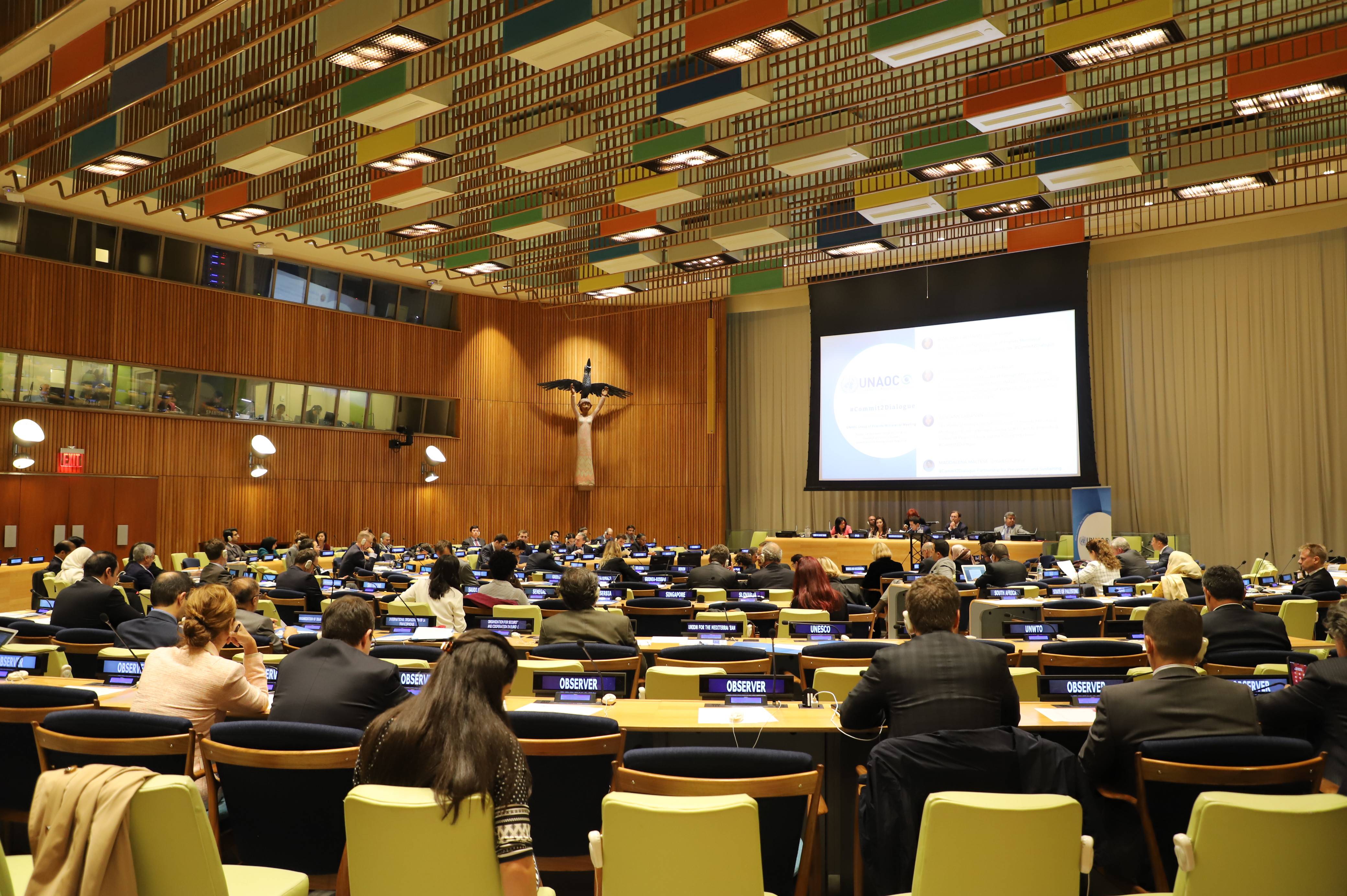Statement by Foreign Minister Zohrab Mnatsakanyan at UNAOC Group of Friends Ministerial Meeting
28 September, 2018High Representative,
Distinguished colleagues,
Ladies and gentlemen,
I join the previous speakers in thanking for the organization of this meeting. It has become a good tradition to use the opportunity of the General Assembly for taking stock of the activities of the Alliance in promoting its declared goals of peaceful planet, with socially inclusive societies, respect and tolerance among peoples regardless of their ethnic or religious identity.
Last April the Armenian nation was united in a non-violent popular movement to insist on democratic governance and denouncing negative practices undermining justice and the rule of law. The peaceful nature of Armenia’s political transformation has demonstrated the maturity of our public and political life and legal literacy. While the Armenian Velvet Revolution was of strictly homegrown, domestic nature, from the outset the new government have announced about its adherence to the same peaceful and non-violent approaches not just in the internal politics but in the conduct of foreign affairs as well.
Armenia is firmly committed to promoting culture of peace especially in our conflict-stricken region. It is easy to build bridges when there is a mutual will: the ultimate challenge is building the bridges where there is a lack of trust and reciprocity. The real adherence to peace can be testified by the commitment to build bridges to restore the trust and confidence between the peoples divided by conflict situations and thus contributing to their settlement.
Ladies and gentlemen,
The ideas, principles and goals enshrined in the Declaration and Programme of Action on the Culture of Peace, as well as the follow-up UN GA Resolution 72/137, which Armenia co-sponsored, remain pivotal in addressing the root causes of violent conflicts. In this regard Armenia has been actively contributing to the international efforts aimed at preventing identity based discrimination and violence. Countering hate speech, intolerance and xenophobia was one of the main priorities of Armenia during its Chairmanship of the Council of Europe in 2013. Last year, Armenia, in partnership with the Organization for Security and Cooperation in Europe, hosted an international conference on preventing hate crimes against Christians and members of other religious groups.
On December 9th Armenia will host the third Global Forum against the Crime of Genocide that will focus on the role of soft power - the education and media in eliminating hatred, intolerance and xenophobia. It will be attended by the world renowned scientists and experts of the field.
Dear colleagues,
One of the main prerequisites for bridging our societies is education. A qualified and innovative education is also a determining factor for active and creative youth. The United World Colleges – Dilijan international school in Armenia is a vivid example in this regard. The school hosts students from all over the world and provides scholarships, including refugees, who are getting to know each other through respect and tolerance, learning to embrace the diversity starting from the school years.
A graphic example of building bridges through innovative education is the Armenian TUMO Center for Creative Technologies and the Smart Center in the Lori region for rural youth. It already has branches not just in Yerevan but other cities and towns, including in Nagorno-Karabakh, hundreds of children have the opportunity to learn and to express themselves. TUMO has expanded its network also to France, Lebanon and Albania connecting the youth of different countries around the innovative and creative ideas.
Dear colleagues,
Armenia has the privilege to host the 17th Summit of la Francophonie next month in Yerevan and has proposed the theme “Vivre Ensemble” - Living together in solidarity, sharing human values and respect for diversity”. The outcome document of the Summit aims to consolidate a collective pledge for strengthening solidarity, cooperation and intercultural dialogue to contribute to the cohesion of our societies in achieving peace, prosperity and stability.
Thank you.


